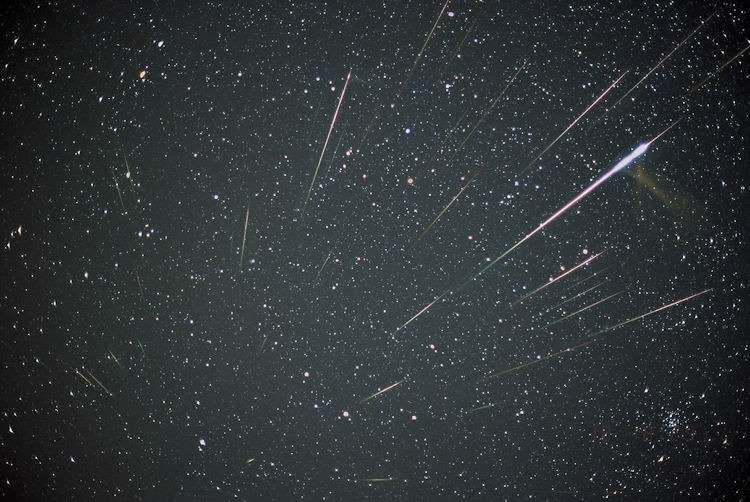
For those that like to watch slow moving shows like meteor showers, this Sunday might be interesting. The shower starts in North America at around 10:00 pm, peaks at midnight, and slows after that. This is an interesting meteor shower in part because it is not coming from a comet, but rather from an asteroid, so it is burning up pieces of rock rather than chunks of ice. That gives the meteors a different color, a lot more yellows, along with “normal” white. Because of the direction of impact, they will be slower and more graceful paths than most meteors. The prediction is about 100 per hour, which sounds like a lot – and it is, but it is also only about one a minute, giving lots of time between events. It is not quite like you see in the spectacular photos you see in magazines and such. Those are real, but time lapse taking over many minutes thus “adding” many meteors to the photo. Apparently there have been times in the historical past where the sky was full of meteors all at once, but don’t expect that. “A lot” is not all that exciting. One of the unusually good things this year is that the moon won’t be in the sky, making the sky much darker and meteors easier to notice. The meteors will come from all parts of the sky, not just from Gemini (although Gemini will be coming up over the eastern horizon at about mid-night). You need to plan for about 20 minutes for your eyes to change to “night vision” mode (it is a chemical change and takes awhile).
Astronomers aren’t sure what caused the particles to get separated from the parent asteroid (Phaethon). Phaethon is on an orbit that takes it far outside of the asteroid belt, indicting that it probably got knocked out by a collision of some sort. Perhaps that created a lot of dust and stuff that travel along with it. Apparently that is unlikely. Phaethon gets very close to the sun and therefore get HOT (around 1400 F), and spins meaning it is alternating hot and very cold. Perhaps that is causing stuff to get ejected – also not likely because of various reasons. Or it got smacked somewhere along the way, which seems to be the current pet theory. In any case, the meteors are small chucks of rocks entering our atmosphere at only about about 80,000 mph (instead of 160,000 mph for the Leonids for example).
I hope to drag myself out to look at it, but have a history of not wanting to get up for such as slow moving show. Perhaps I’ll see the tail end of the shower in my early morning star gazing from my hot tub at 5:00 am or so. I won’t see so many meteors, but it will be much more pleasant watching for them.